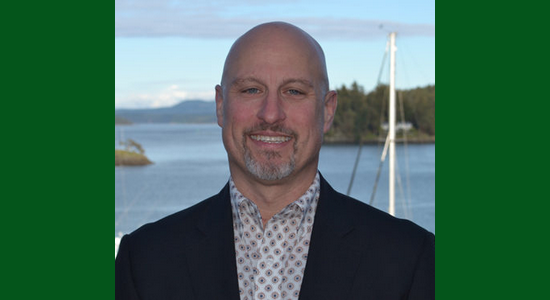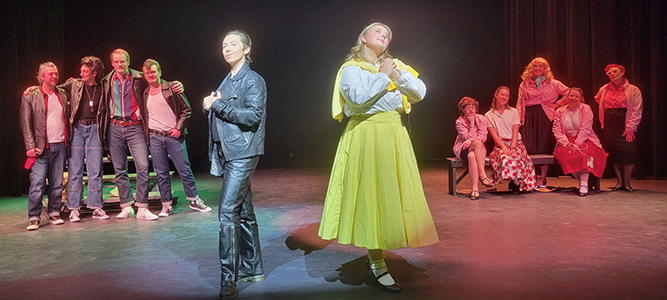||| ORCASIONAL MUSINGS BY STEVE HENIGSON |||
Have you tried to go to or from the mainland lately? Did you have any difficulty making a reservation? Was the ferry running late?
Washington State Ferries (WSF) tells us that we are getting slow, overcrowded service because WSF did not change from its fewer, winter-schedule trips, to its summer rota of more frequent journeys in larger boats. They didn’t make that usual change, this year, because, due to absences caused by the Chinese Virus, they were having staffing problems, and, also because of the “Wu Flu,” fewer travellers were expected to use the ferry system, this summer.
Although WSF has asked that we all limit our trips to truly essential travel, people seem not to have been listening. So just about the normal number of visitors have been coming to our islands, and islanders have been keeping just about the normal number of mainland appointments. But everybody has been doing it on the inadequate winter ferry schedule, so just about every trip is overcrowded, and just about every boat is running hours late.
So why hasn’t WSF changed to larger boats, changed to the summer schedule, and hired extra crew? Well, the first two items are pretty easy to accomplish, assuming that more and larger boats aren’t temporarily laid-up in the repair yard, and are therefore available for service. The hard part is finding the crews. Each member of every boat crew has to be tested and certified by the Coast Guard, of course, but also they all have to be accepted by the Inlandboatmen’s Union of the Pacific, and hired according to the strictures of its agreement with WSF. And that last is the really hard part.
Unions don’t like having too many workers for too few jobs, because that gives employers economic leverage to keep wages low: “If you won’t work for the salary I’m offering, that guy over there will.” So the union has an incentive to permit only the fewest ferry workers.
But employers don’t like having too many jobs for too few workers, because then the leverage goes the opposite way, and the employee says: “Pay me more, or I’ll go work somewhere else.” So WSF would prefer a large pool of ferry crew members, many of them idle, from which to call up the people it needs, when it needs them.
Either way, it’s a delicate balance, but, usually, the union ends up in control of who works and who doesn’t, and what the wage-and-benefits package is. WSF can’t afford to antagonized the union by pushing too hard for more crew, because the union might push back. Can you imagine the chaos that would be caused by a ferry-worker strike?
And union workers vote, so WSF, a state-government agency, can’t afford to alienate them. Thus, besides the economics of the situation, the union also wields enormous political clout, and that enters into the ferry-crew problem as well. Right now, you might be thinking, “Well then, why not get both the union and the state out of the ferryboat business, and simplify, and cheapen, the entire process?” Aha! Eureka! (Whoops: Sorry. That’s California’s word, not Washington’s.)
Once upon a time, there was a privately-owned ferry system that carried people, vehicles, and goods all over Puget Sound and the Salish Sea. It was called The Black Ball Line, and it was profitable enough to be comfortably self-sustaining for many, many years. Indeed, it was well-enough run that, finally, it had no competition. It was famous, also, for it’s most modern and innovative boat, the futuristic MV Kalakala, and, at the other end of the spectrum, the old, wooden, ex-Californian, MV City of Sacramento. But the State of Washington decided that the Black Ball Ferry Line was actually an extension of the state highway system, so Washington forced Black Ball to sell its ferries to the state government.
Well, it sold all but one of its ferries, anyway. The Black Ball Ferry Line still exists, but in much-reduced form. It runs the MV Coho, a passenger-and-vehicle ferry which (ordinarily) makes daily trips between Port Angeles, Washington, and Victoria, British Columbia. Maybe it would be a good idea to reconstitute the old, original, wide-ranging Black Ball Line, to privatize WSF, and to go back to singing (along with Bing Crosby and the Andrews Sisters, or maybe with our own Olga Symphony):
On the Black Ball Ferry Line up in Seattle
Every single GOP and Democrat’ll
Hear the whistle go (TOOT!)
And the bells go (DING!)
As the ferryboats are chuggin’ right along…
**If you are reading theOrcasonian for free, thank your fellow islanders. If you would like to support theOrcasonian CLICK HERE to set your modestly-priced, voluntary subscription. Otherwise, no worries; we’re happy to share with you.**









Been saying for years
PRIVATIZE.
Fast hovercraft similar
to the boats that run a. superb and profitable service between Dover and Calais. —uh, that’s the English Channel, folks.
I wonder where all the money does
from increased
fared crowded
ferries.
Every utility that gets privatized gets more expensive, and false myths of conservatism drive privatization.
It also takes voter choice away.
Even with the virus, the traffic is out of control. It is very difficult for instance, to schedule an off-island doctor appointment.
It is time to provide priority loading passes for people who can prove they are Island residents.
Fun! Whereas “eureka” is conventionally attributed to Archimedes, “whoops” is definitely Washington State (WPPSS)!
I believe the scientific name, not the political dog-whistle name, is Covid19.
Edith, I like to put the blame where the blame is due. It’s not a political statement, but rather a social one.
And please remember that my essay is about the ferry system and its failures, not about the illness-of-the-week.
I’m with Edith.
I’m with Edith and Kristen.